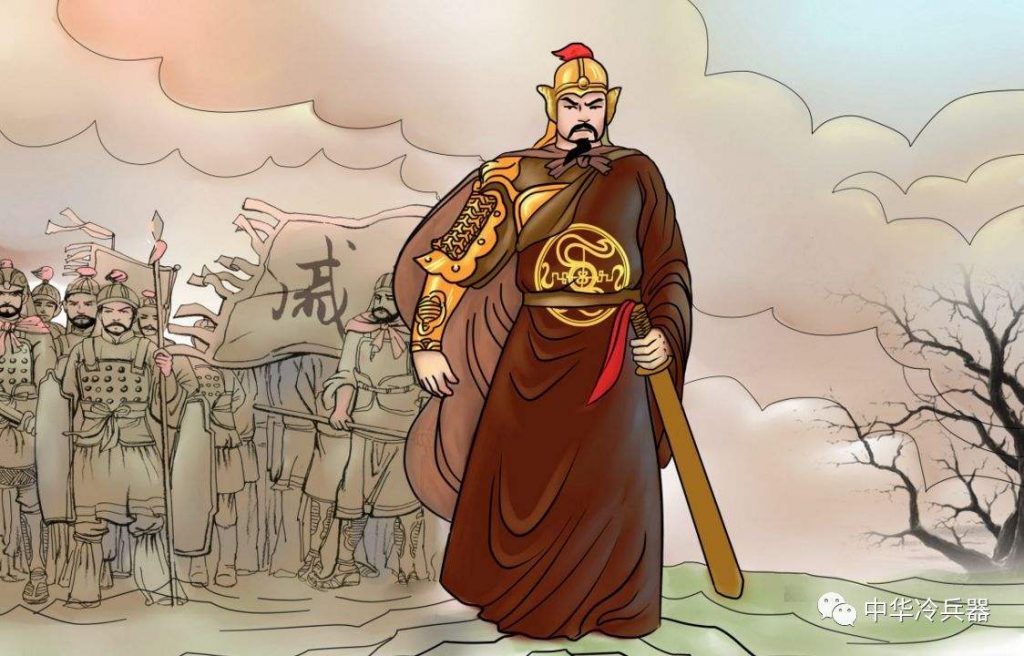Qi Jiguang
5 min readEarly Life
Qi Jiguang(1528-1588)was a Chinese military general and national hero during the Ming Dynasty.He was best remembered for his courage and leadership in the fightagainst Japanese pirates along the east coast of China,as well as his reinforcement work on the Great Wall of China.
Qi Jiguang was born in the town of Luqiao in Shandong province to a family with a long military tradition.His forefather served as a military leader under Zhu Yuanzhang and died in battle.
Qi Jiguang’s father,Qi Jingtong,was an honest and upright man.He cultivated in his son a yearning for knowledge as well as a firm set of morals.Whenhis father died,Qi Jiguang took over the acommandership of Dengzhou Garrison at the age of seventeen.Besides building up naval defense at the garrison,he also had to lead his troops to help in the defense of Jizhou,against East Mongolian raiders during spring time from 1548 to 1552.

At twenty-two,Qi Jiguang headed for Beijing to take part in the martial arts section of the imperial examination.During this time,East Mongolian troops led by Altan Khan broke through the northern defense and laid siege on Beijing.Candidates participating in the martial arts exam were also mobilized to defend the capital.Qi Jiguang displayed extraordinary valor and military ingenuity during the battle,which eventually saw the defeat of the invaders.
Battles Against Japanese Pirates
In the fall of 1555,Qi Jiguang was sent to Zhejiang,where the Japanese pirates colluded with their Chinese counterparts and expanded their forces.Together with two other renowned generals of his time,Yu Dayou and Tan Lun,Qi Jiguang led the Ming soldiers to a decisive victory at Cengang in 1558.Henceafter,his troops continued to deal fatal blows to the pirates at Taozhu,Haimen Garrison and Taizhou.
With the situation in Zhejiang under control,Qi Jiguang began to concentrate on training a disciplined and effective army.He drafted mainly miners and farmers from the county of Yiwu because he believed these people to be honest and hardworking.
The first trial for Qi Jiguang’s new army came in 1559.After a month-long battle with Japanese pirates in the Taizhou Prefecture,with the pirates suffering over five thousand casualties,Qi Jiguang’s army established a name for itself among both the people of Zhejiang and its enemies Partly as a result of Qi Jiguang’s military success in Zhejiang,pirate activities surged in the province of Fujian.More than ten thousand pirates had established strongholds along the coast from Fu’an in the north to Zhangzhou in the south.In July 1562,Qi Jiguang led six thousand elite troops south into Fujian.Within two months,his army eradicated three major lairs of Japanese pirates at Hengyu,Niutian and Lindun.
However,his own army also suffered significant losses to fighting and diseases.
Seeing the pirate infestation in Fujian subdued,Qi Jiguang then returned to Zhejiang to regroup his force.The Japanese pirates took the opportunity to invade Fujian again,this time succeeding in conquering Xinghua(兴化)(present day Putian).In April 1563,Qi Jiguang led ten thousand troops into Fujian and regainedXinghua.Over the next year,a series of victories by Qi Jiguang’s army finally saw the pirate problem in Fujian fully resolved.
A final major battle against Japanese pirates was fought on the island of Nan’ao,which lies near the boundary between the provinces of Fujian and Guangdong,in September 1565.There Qi Jiguang joined arms with his old comrade Yu Dayou again to defeat the remnant of the combined Japanese and Chinese pirate force.
Years on the Northern Frontier
With the pirate situation along the coast under control,Qi Jiguang was called to Beijing in late 1567 to take charge of training troops for the imperial guards.
In the next year,he was given command of the troops in Jizhou to defend against the Mongols.Qi Jiguang soon began the repair work on the segment of the Great Wall between Shanhai Pass and Juyong Pass.Meanwhile,he also directed the construction of watchtowers along the wall.After two years of hard work,more than a thousand watchtowers were completed,giving the defensive capability in the north a great boost.
Achievements
Qi Jiguang was mostly credited with cleaning the Southeast China coast off Wokou Raid.Althought he isn’t the only general that contributed to the effort,many historians regarded as the one that contribued the most.It is also in his lifetime,did the historians called the end of Wokou era.
Wodao
Qi Jiguang equipped his militia with the Japanese katana,which the Chinese called Wodao.The Wodao will continued as the main weapon used by Chinese soldiers in the Ming era.
Books by Qi Jiguang
Not only was Qi Jiguang a brilliant general,he also left behind his invaluable practical experience in the form of two books on military strategy-Ji Xiao Xin Shu and Record of Military Training.He also wrote a great number of poems and proses,which he compiled into the Collection of Zhizhi Hall,named after his study hall during his office in Jizhou.
Qi Jiguang also conducted a month-long military exercise involving more than 100000 troops in winter 1572.From the experience of the maneuver he wrote Records ofMilitary Training,which became an invaluable reference for military leaders after him.Over the sixteen years when Qi Jiguang was in Jizhou,not a single Mongolian raider crossed to the south of the Great Wall.
In early 1583,Qi Jiguang was relieved of his duty on the northern frontier and assigned an idle post in Guangdong.His already ill health worsened in the next two years,forcing him to retire to his hometown.He finally died in 1588,days before the Lunar New Year.
Guang Bing
According to legends,a kind of hard pancake called guang bing which is sti1l widely consumed in Fujian province today was named after Qi Jiguang.When QiJiguang led his troops into Fujian in 1562,the Japanese pirates,fearing his name,engaged mainly in guerrilla-style battles.To enable Qi Jiguang’s troops to march for days in pursuit of the enemy,the people of Fujian baked for them many disc-shaped cakes roughly the size of a palm.In the center of these cakes holes were made so that they could be strung together to be conveniently carried along.Later,to commemorate Qi Jiguang’s victory against the pirate raiders,the cakes were named guang bing.








